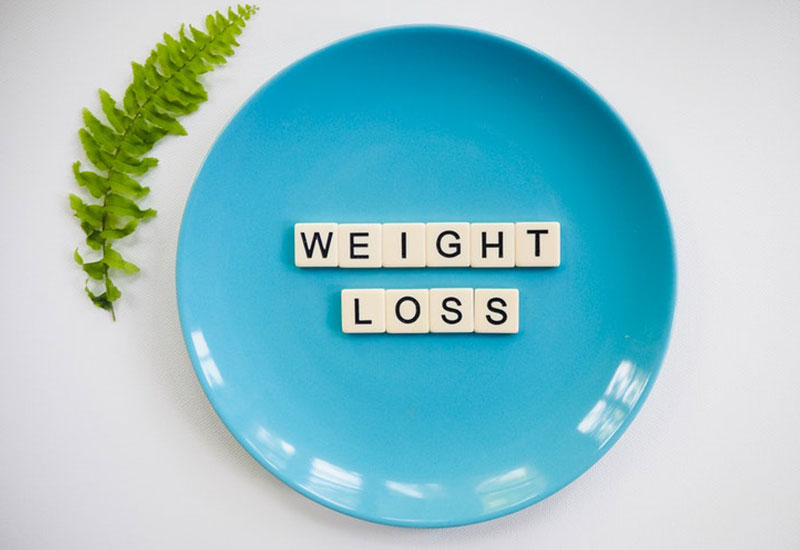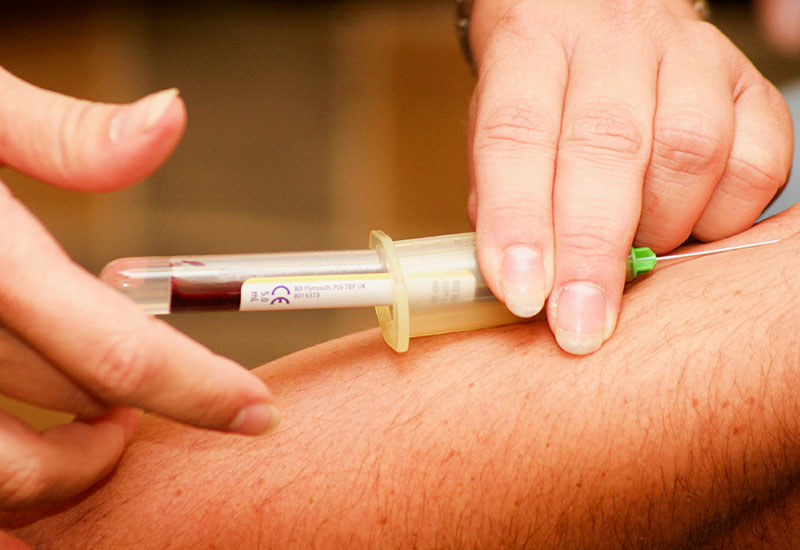Do vegans have better blood values than meat eaters? This is an exciting question that more and more people are asking themselves these days. After all, vegans consume fewer saturated fatty acids, which could well lead to a better blood count. But is that really the case, or are there perhaps also aspects of a plant-based diet that have a negative effect on one's hematogram?
Lifestyle and diet can influence the Promote health or for example to nutritional diseases lead. Therefore, I want to give you an insight into the blood count of vegans and present you some studies that compare the blood values of vegans and mixed-food people.
For the overview here is a short table of contents:
Differences in the vegetable diet
Vegan doesn't necessarily mean healthy, because vodka, fries and Oreo cookies are also vegan. Therefore it is important to distinguish between a whole food vegan diet and the so-called junk food veganism. The health-conscious vegans eat as full a diet as possible, as well as largely vegetable without substitutes.
A meta-analysis of the Harvard University examined data from three studies and associated health data from nearly 200,000 people. The study distinguished between Flexitarians, vegans and junk food vegans differentiated. The study found that the health-conscious vegans had the best heart health, whereas the flexitarians and junk food vegans were more likely to develop heart disease.1
Unfortunately, studies often do not distinguish between whole food vegans and junk food vegans, so the validity of these studies lags somewhat.

Study results on blood values of vegans
The question of whether vegans generally have better blood values than mixed-food eaters cannot therefore be answered across the board. But the values, which are connected with the heart health, seem to cut off with Veganern on the average better than with Fleischessern. There are however also a set of blood values, with which also the mixing foodler frequently lie in front. Here I would like to suggest you for a clear answer to the initial question "Do vegans have better blood values?" therefore still some further studies to the heart.
Giessen whole food study: Vegans have good blood fat values
In the Giessen whole food study a vegetarian, whole-food diet was compared with an average mixed diet. The blood lipid values of the whole-food vegetarian group were above average, because a high value for healthy HDL cholesterol and low triglyceride levels were found. High triglyceride levels increase the risk of vascular disease. However, some of the whole-food vegetarians had a too low Vitamin B12-value. This study underpins the positive effects of a wholefood diet and the importance of consciously planning for individual nutrients in vegetarian or vegan diets.2
Another study compared 21 meat eaters with 21 vegans. In the comparison, vegans had a lower total cholesterol and less heart-damaging LDL cholesterol, while the values for the health-promoting HDL cholesterol were roughly identical. So this study also comes to the conclusion that vegans have better blood lipid values and thus a higher heart health have3
Do vegans really have better blood values?
However, there is also a study that observed that Vegans tend to have low HDL cholesterol levels. HDL cholesterol increases heart health. However, vegans need far less HDL cholesterol than meat eaters because vegans have lower LDL cholesterol levels on average. This is because the function of the health-promoting HDL cholesterol is to balance the harmful LDL cholesterol.4
Vegans have higher heart health
A study at Loma Linda University in California examined 840 participants with different diets. Among them were vegans, vegetarians, pescetarians, flexitarians, and meat eaters. It came out that the disease prevention indicators in the vegans higher than average were - the blood values were also particularly good.5 There are many more studies that show that a whole-food, plant-based diet can improve the Risk of cardiovascular disease significantly reduced.6,7,8,9
What is the effect of the good blood values of vegans?

The good blood profile of vegans reduces the risk of nutritional diseases such as cancer, diabetes, obesity, hypertension or atherosclerosis, as well as their potentially fatal sequelae such as heart attack or stroke.
A plant-based diet offers good protection against high levels of inflammation in the blood. The high proportion of secondary plant compounds in a vegan diet has an antioxidant effect and thus protects against cell damage, as well as chronic diseases.
On average, vegans can more easily and healthier slimming than meat eaters. Researchers found this in various studies and attributed it to better blood fat levels.10,11 Overweight and obesity are also risk factors for diabetes, hypertension and coronary heart disease.
What blood values should vegans pay attention to?
There are several nutrients that could potentially be critical in a vegan diet. These include among others Vitamin B2, B12 and D, as well as Omega 3, Zinc, Iodine, Calcium, Selenium and Iron.12
That's why vegans should Keep a close eye on the blood levels of these substances and regular blood tests (Click here for the Vegan Nutrient Check*).
Holo-Transcobalamin
Holo-transcobalamin is a good marker for vitamin B12 supply because it measures the active B12 in the body. The value is not usually included in the CBC, but can be included upon request. It should be higher than 50 pmol/l be
25-OH-D3 (Vitamin D3 )
25-OH-D3 or vitamin D is formed on bare skin when exposed to sunlight. Accordingly, here in Germany we receive significantly too little of it, especially in the darker half of the year. Therefore, it is also useful to check your level towards the end of winter to determine whether you have stored or are adding enough vitamin D for the winter. A healthy vitamin D level of adults is between 40 and 70 ng/ml.
Vitamin B2
Riboflavin or vitamin B2 is also a potentially critical nutrient and should therefore be checked regularly. The riboflavin value should be over 200 nmol/l and can be tested in whole blood.
Ferritin
The ferritin value indicates how much iron is stored in the body. Incidentally, iron deficiency is the most common nutritional deficiency worldwide, regardless of the type of diet.13 The ferritin value should be at least above 10 µg/lbut better above 20 µg/l.
Vegans usually have good blood values

Just because someone is vegan, they do not automatically have better blood values compared to meat eaters. But vegans have particularly good blood values on average. Especially the important indicators for heart health are above average. Anyone suffering from high blood pressure, type 2 diabetes, obesity or atherosclerosis should therefore think about a Change to a plant-based diet think.
However, there is also the need to pay attention to certain values such as vitamin B2, B12 and D, as well as iron. With a balanced diet with whole grain products, Legumes, much Fruit and vegetables you can supply yourself well with most nutrients. For everything beyond that, I recommend you take a look at our post on Dietary supplement for vegans.
I hope you found the post on blood values of vegans and mixed foodists helpful. Feel free to leave me a comment with your opinion, questions or criticism.
All the best,

P.S.: If you are interested in sustainability and health, you might also find the posts on sustainable nutrition, Health Promotion or Intermittent fasting interesting.
References:
1 S. Ambika et al. (2017) Healthful and Unhealthful Plant-Based Diets and the Risk of Coronary Heart Disease in U.S. Adults, July 2017, https://pubmed.ncbi.nlm.nih.gov/28728684. [02/20/2022].
2 I. Hoffmann et al. (2001): Giessen Wholesome Nutrition Study: relation between a health-conscious diet and blood lipids, https://www.uni-giessen.de/fbz/fb09/institute/VKE/nutr-ecol/forsch/forsch-epid/gi-vollw-studie. [20.02.2022]
3 A. Kuchta et al. (2016) Impact of a plant-based diet on lipid risk factors for atherosclerosis, Cardiol J, https://pubmed.ncbi.nlm.nih.gov/26779974 [Feb 23, 2022].
4 D. Li (2011): Vegan's elevated heart risk requires omega-3s and B12, J Agric Food Chem, https://www.acs.org/content/acs/en/pressroom/presspacs/2011/acs-presspac-february-2-2011/vegans-elevated-heart-risk-requires-omega-3s-and-b12.html. [23.02.2022]
5 F. L. Myles et al.(2019): Plasma, Urine, and Adipose Tissue Biomarkers of Dietary Intake Differ Between Vegeterian and Non-Vegetarian Diet Groups in the Adventist Health Study 2, The Journal of Nutrition, Volume 149, https://academic.oup.com/jn/article/149/4/667/5320848?login=true [Feb 23, 2022].
6 C. B. Esselstyn et al, A Way to Reverse CAD?, July 2014, https://pubmed.ncbi.nlm.nih.gov/25198208. [Feb. 20, 2022].
7 Y. W. Huang (2014): Vegan diet and blood lipid profiles: a cross-sectional study of pre and postmenopausal women, BMC Womens Health, https://pubmed.ncbi.nlm.nih.gov/24712525 [Feb. 23, 2022].
8 J.C. Vinagre (2011): Metabolism of triglyceride-rich lipoproteins and transfer of lipids to high-density lipoproteins (HDL) in vegan and omnivore subjects, Nutr Metab Cardiovasc, https://pubmed.ncbi.nlm.nih.gov/21937206 [Feb 23, 2022].
9 J. R. Benatar (2018) Cardiometabolic risk factors in vegans; A meta-analysis of observational studies, PLoS One, https://pubmed.ncbi.nlm.nih.gov/30571724 [Feb 23, 2022].
10 G. Turner-McGrievy (2014): Comparative effectiveness of plant-based diets for weight loss: A randomized controlled trial of five different diets, The International Journal of Applied and Basic Nutritional Sciences, https://pubmed.ncbi.nlm.nih.gov/25592014 [23.02.2022]
11 R. H. Huang et al. (2015) Vegetarian Diets and Weight Reduction: a Meta-Analysis of Randomized Controlled Trials, Journal of General Internal Medicine, https://www.sciencedaily.com/releases/2015/06/150630121807.htm [Feb. 23, 2022].
12 Deutsche Gesellschaft für Ernährung e. V.: Supplement to the position of the German Nutrition Society regarding population groups with special nutritional needs, https://www.dge.de/wissenschaft/weitere-publikationen/dge-position/vegane-ernaehrung/?L=0 [Feb. 22, 2022].
13 E. McLean E et al. (2009) Worldwide prevalence of anemia, WHO Vitamin and Mineral Nutrition Information System, Public Health Nutr 12th, https://www.cambridge.org/core/journals/public-health-nutrition/article/worldwide-prevalence-of-anaemia-who-vitamin-and-mineral-nutrition-information-system-19932005/E201EDE33949AF3D632F6596052FCF8F [Feb 22, 2022].





